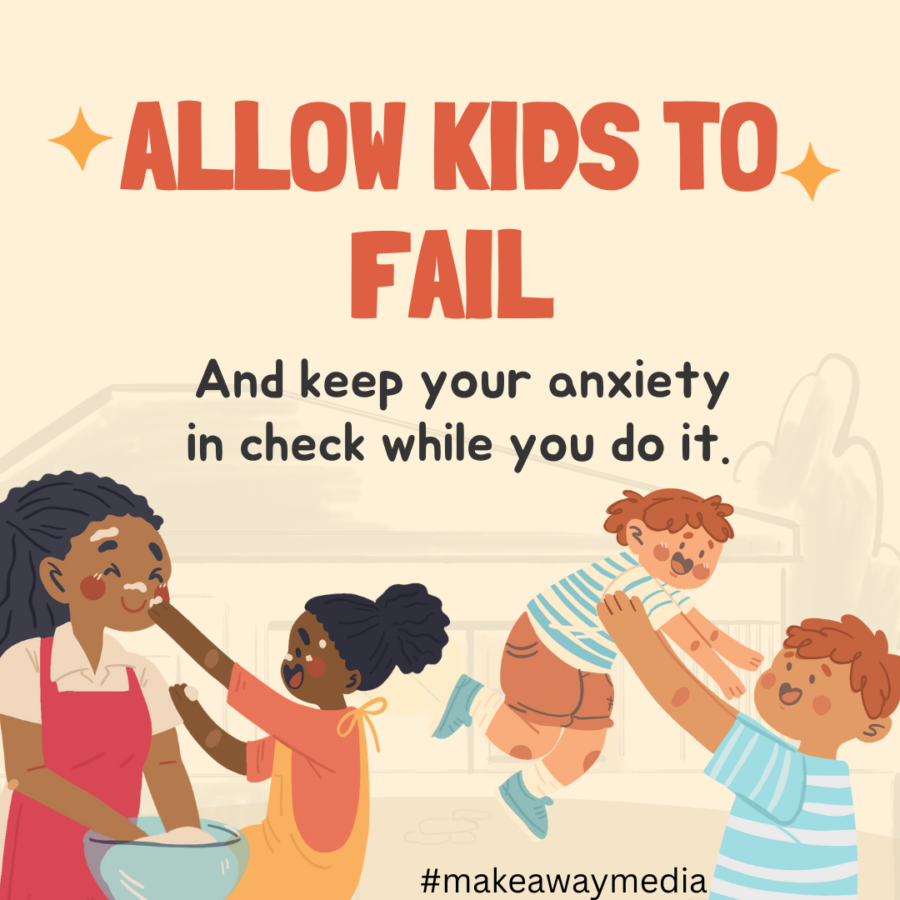It is hard to watch your children make mistakes; it literally hurts your heart because you know the sadness, disappointment, or frustration that your child will experience. But just as you learned from your own mistakes and managed the feelings that came with them, so too must your children.
Stepping in feels like an act of love because it removes hardship and potential pain, but the opposite is actually true and strangely paradoxical. Parents hobble their children by clearing the way for them and removing problems and obstacles.

So how can a parent manage their own anxiety that comes with letting children make mistakes?
1–Remember that your child is not a reflection of you
Our children may get traits and tendencies from us, but they are not us, and we are not them. They are their own people who are going to make choices that differ from ours. It is important to remember this and honor your child for who they are. Parents sometimes want to prevent and/or mitigate their children’s mistakes because they don’t want others to see them in a bad light. It is times like these we might need to remind ourselves of something we often tell our children: “It doesn’t matter what other people think; do what you know in your gut is right.”
2–Open up lines of communication
If you are concerned that your child will make a mistake or fail to do something, you might consider posing one or two questions rather than lecturing or nagging (since no one likes to be on the other end of that). For example, asking “How is that history paper coming along?” lets your child know you are paying attention but it doesn’t overwhelm them. You might follow up with, “Let me know if you need help or want some feedback,” a statement that shows your support. It also puts the ball in your child’s court, giving them ownership of the issue and with an idea of how to handle this problem.
3–Let consequences happen
Life is going to hand your children consequences. If they refuse to wear a jacket to school, they will be cold, but one day of cold will teach them to dress more appropriately. If they forget to pack their lunch, they will be hungry and remember their lunch the next day. There may be some situations where you tell your child that you will instill consequences. For example, a child who doesn’t pass classes may get their phone taken away until the grades improve.
But the most important thing about consequences is they have to be consistently enforced. If you give a consequence and don’t enforce it, that consequence has lost meaning and you’re child will only learn that you don’t follow your own word.
4–Breathe deeply and let it go
You cannot control everything nor should you try. Letting go of that desire to control and taking a deep, cleansing breath is powerful. Remind yourself that you turned out alright and your children will too. Life is full of lessons. We do not have to personally administer them all. In fact, the lessons your child may remember the most will come from the times you let them make their own way… and their own mistakes.


